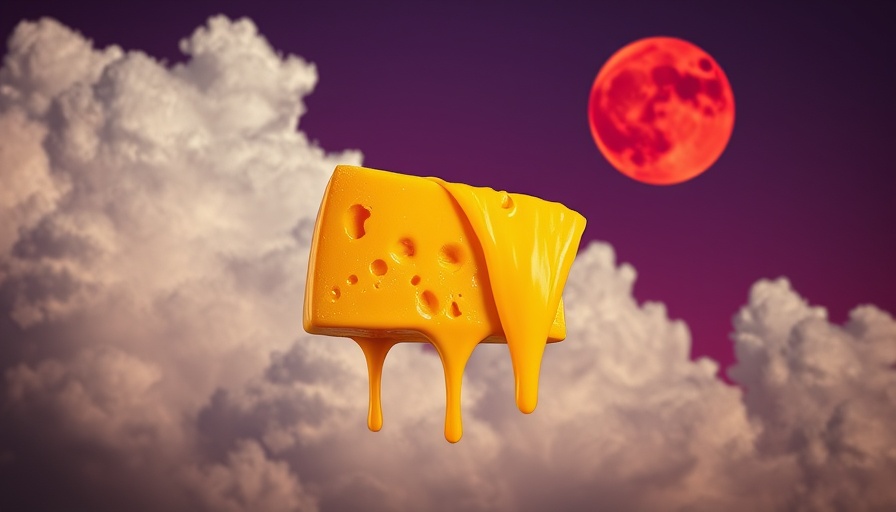
The Unseen Impact of Climate Change on Dairy Farming
Climate change is more than just a distant future concern; it is actively reshaping agricultural practices and the quality of food we consume today. Dairy farming, particularly the production of cheese—a staple in many small business menus and artisanal shops—is being seriously threatened by increasingly erratic weather patterns and extreme temperatures.
How Climate Change Affects Milk Quality
Several studies across the globe elucidate the direct correlation between the health of dairy cows and the quality of milk they produce. As temperatures rise and feed becomes scarce, dairy farmers are experimenting with alternative feeding practices to stabilize yields. For example, researchers at the Université Clermont Auvergne found that cows fed on grass produced richer, more nutritious milk compared to those on corn-based diets. This realization has significant implications for cheesemakers who rely on the rich, distinct flavor of grass-fed milk for high-quality cheese.
Addressing Nutritional Shortages
Small business owners in the food industry should be acutely aware of changes in nutritional content due to shifts in farming practices. The heart-healthy omega-3 fatty acids and beneficial lactic acids found in milk from grass-fed cows can influence not only the flavor of cheese but also its health benefits. It matters for restaurant owners who market their dishes as healthy or farm-to-table.
The Economic Implications for Small Businesses
For small business owners, especially in the dairy sector, adapting to climate-related challenges means juggling multiple concerns—from sourcing quality ingredients to maintaining customer satisfaction. As heat stress affects cow behavior and milk production, these business owners may face rising costs and potential losses. Understanding the long-term implications of these changes can be vital for strategic planning and operational resilience.
Learning From Global Practices
Brazilian dairy farmers are already dealing with these challenges, citing problems with milk composition owing to heat. Gustavo Abijaodi, a farmer in Brazil, illustrated how stabilizing heat effects through improved cattle management leads to better quality milk. Such insights can guide local farmers and cheesemakers in adopting innovative solutions that enhance resilience despite changing temperatures.
Taking Action: What Small Business Owners Can Do
Businesses specializing in food, especially dairy, should be proactive. Collaborating with farmers to understand the challenges and investing in sustainable practices can lead to stronger supply chains and high-quality products. Offering customer transparency about sourcing and production can build trust and loyalty among consumers who increasingly seek ethically produced food.
Your Cheese: The Frontline of Climate Change
The next time you enjoy a slice of cheese, remember: its quality may be influenced by the changing climate. As small business owners and advocates for sustainability, understanding this connection will empower you to make informed choices and advocate for better business practices that protect both your offerings and the environment. The fight against climate change starts at our table, one cheese wedge at a time.
If you want to dive deeper into how climate change is shaping dairy production and what it means for the future of food, consider reaching out to local agricultural experts or joining sustainable agriculture networks.
 Add Row
Add Row  Add
Add 




 Add Row
Add Row  Add
Add 

Write A Comment